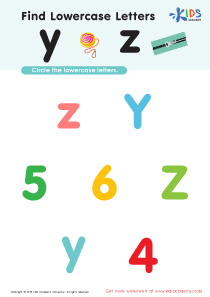Letter recognition Normal Uppercase Letters Worksheets for Ages 6-8
11 filtered results
-
From - To
Enhance your child’s literacy with our engaging Letter Recognition Normal Uppercase Letters Worksheets, designed specifically for ages 6-8. These interactive worksheets help young learners identify and differentiate uppercase letters through fun and stimulating activities. Each worksheet is crafted to strengthen your child's understanding of the alphabet while developing essential reading and writing skills. With inventive exercises that incorporate coloring, tracing, and matching games, these resources make learning enjoyable and effective. Foster a love for letters and encourage confidence in literacy as your child completes each worksheet. Perfect for home or classroom use, our printable worksheets support early education and school readiness!
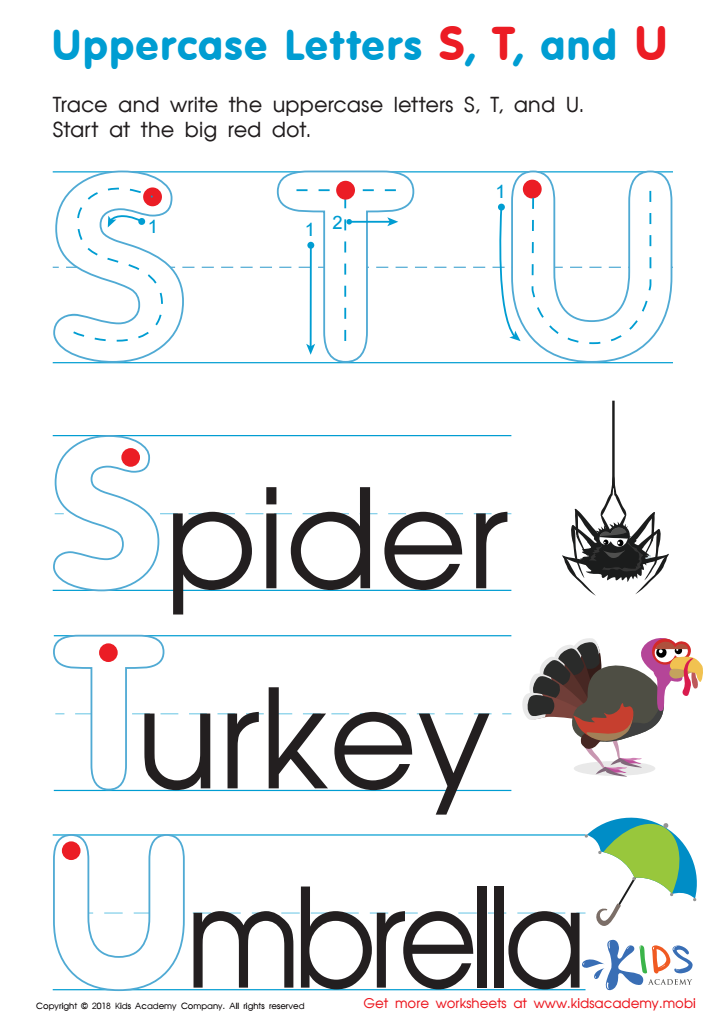

Uppercase Letters S, T, and U Worksheet
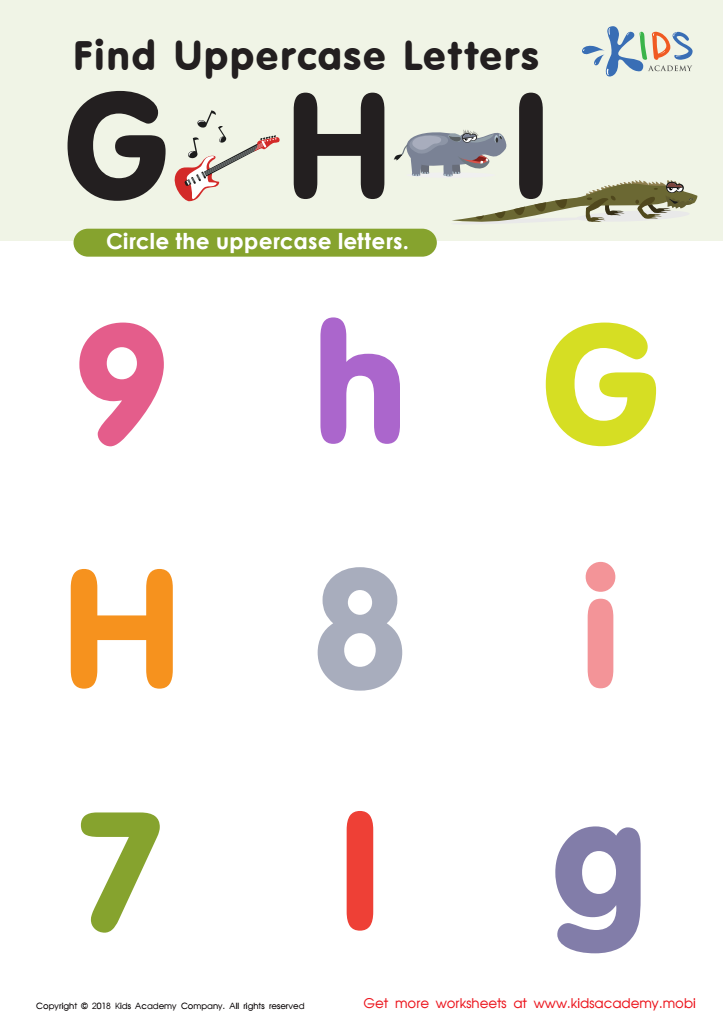

Find Uppercase Letters G, H, and I Worksheet
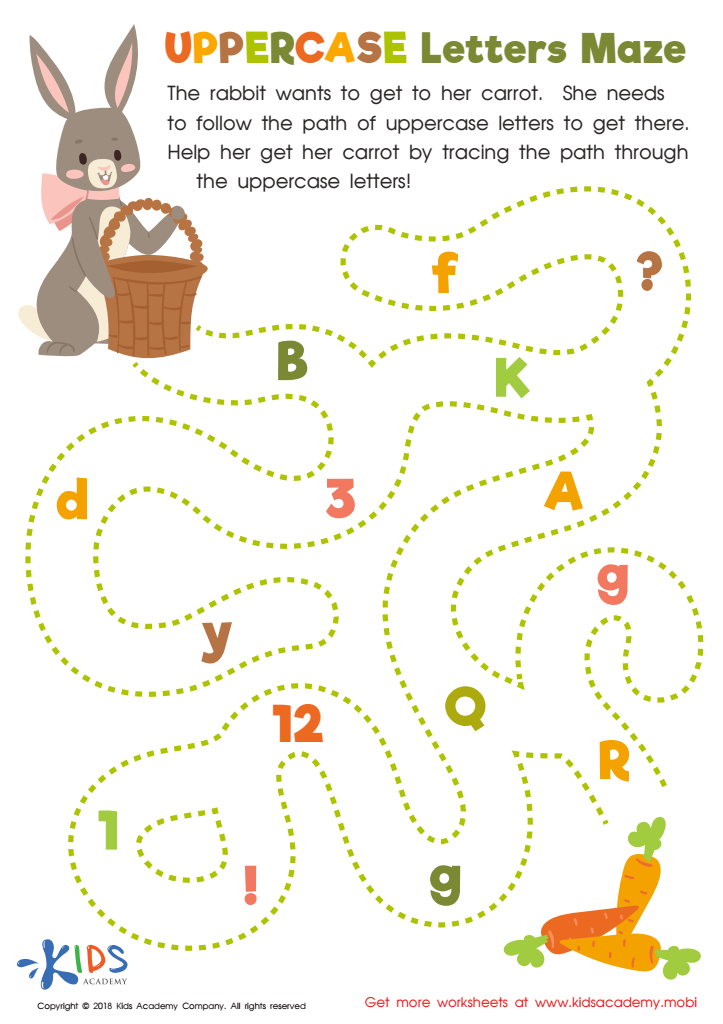

Uppercase Letters Maze Worksheet
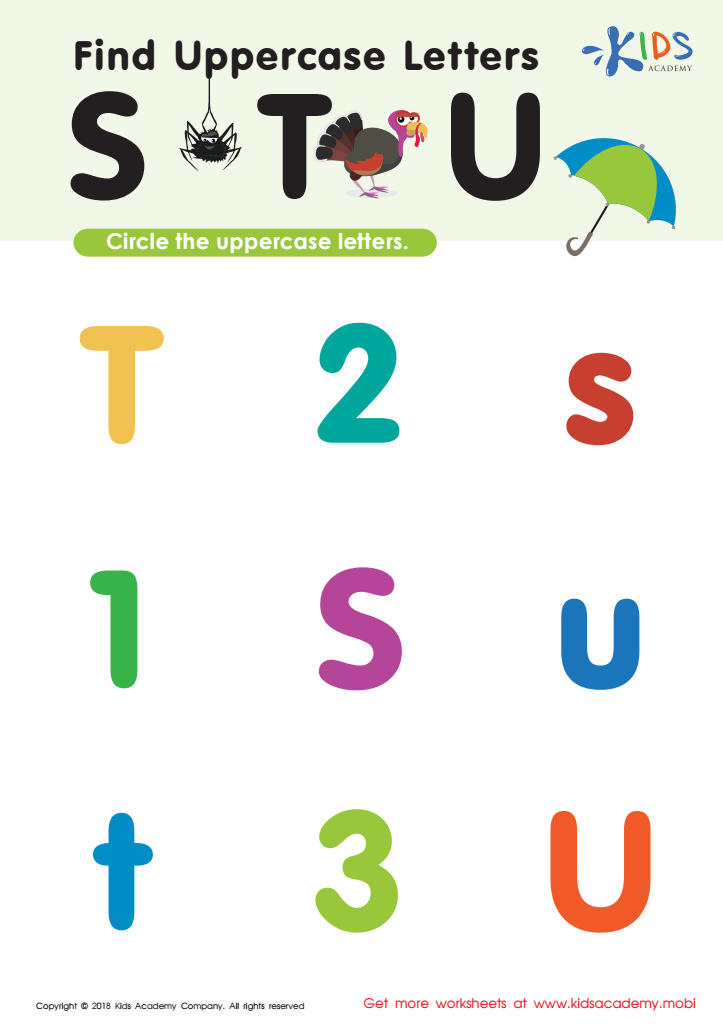

Find Uppercase Letters Worksheet
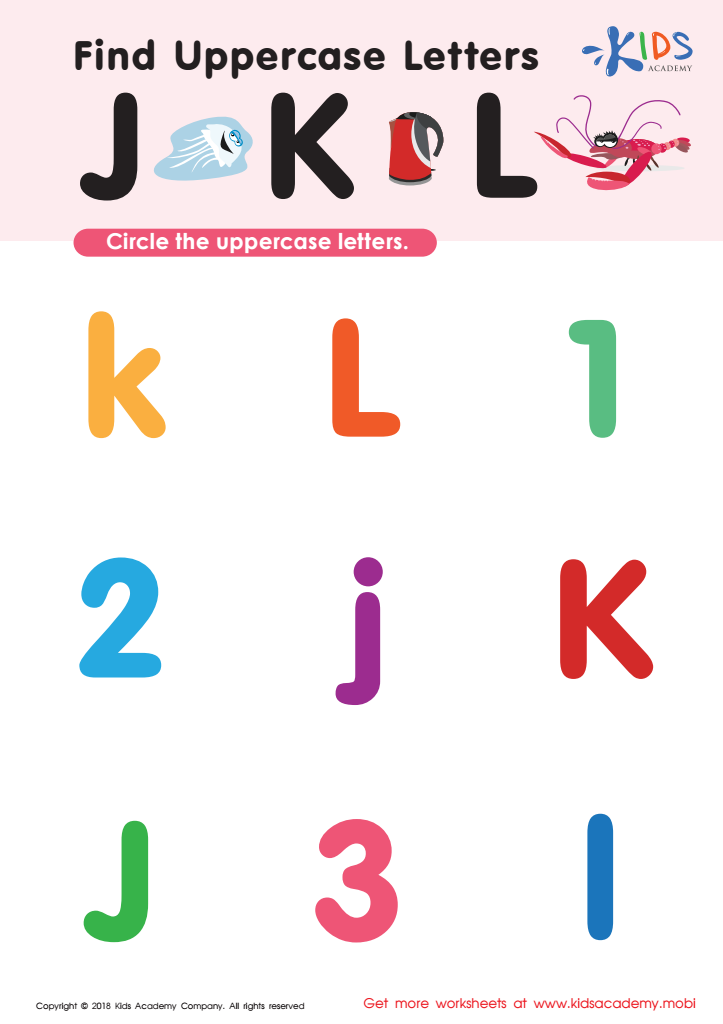

Find Uppercase Letters J, K, and L Worksheet
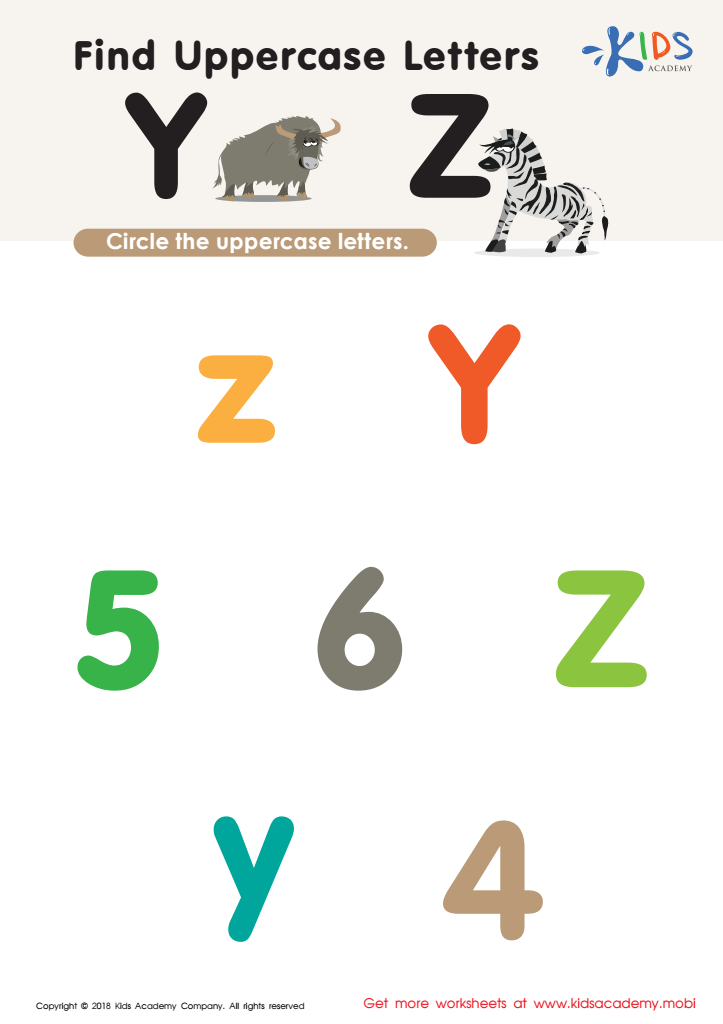

Find Uppercase Letters Y Z Worksheet
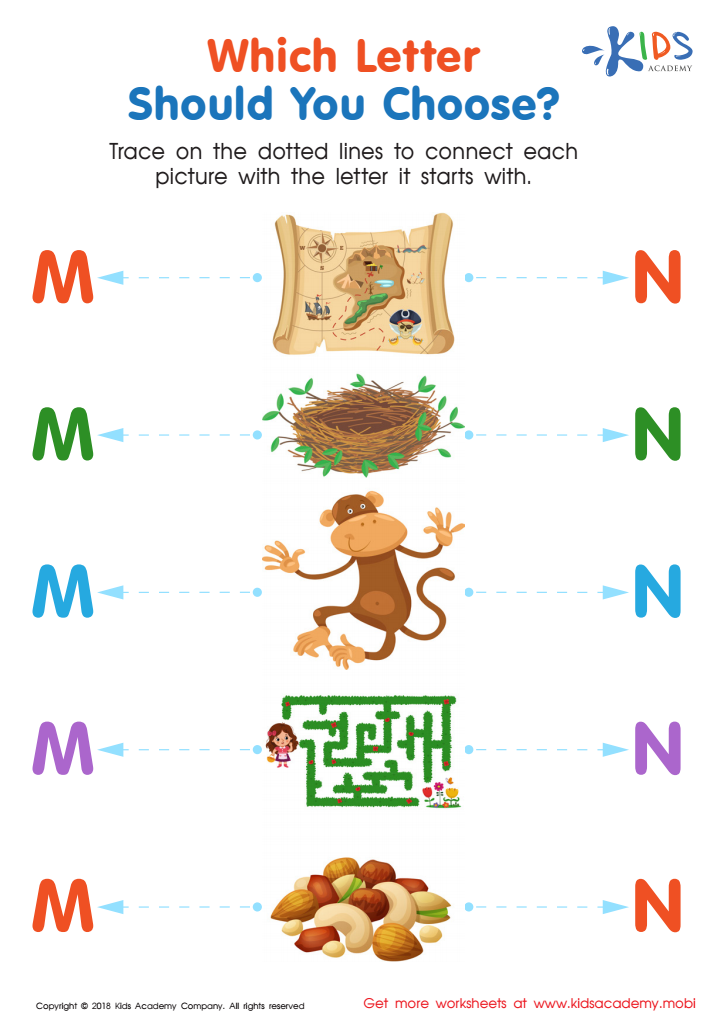

Which Letter Should you Choose? Worksheet
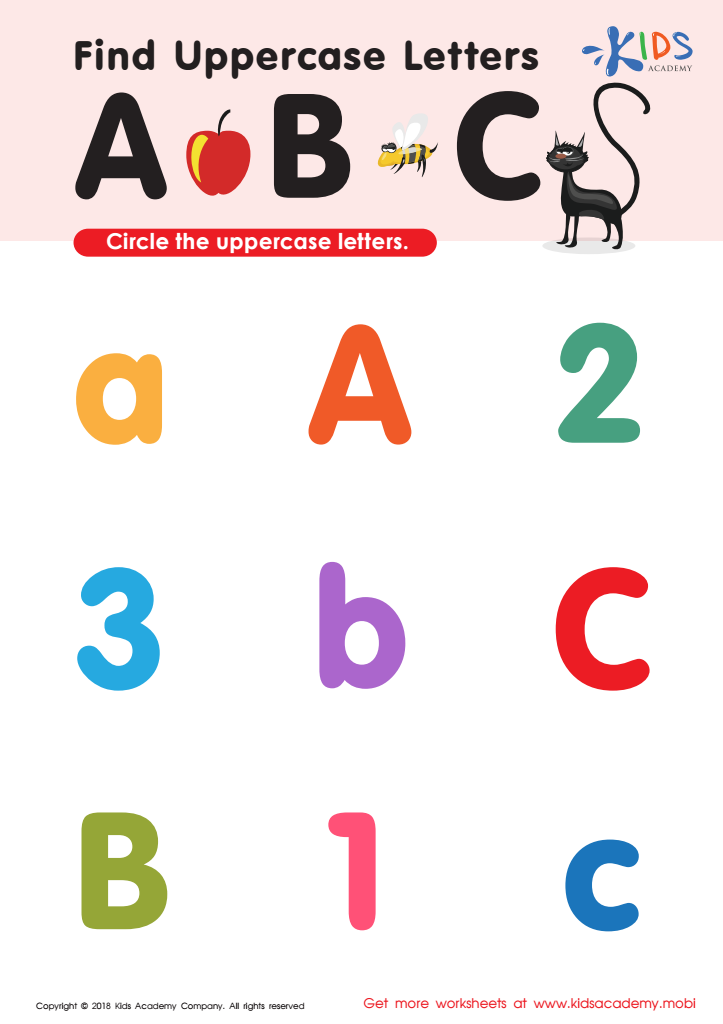

Find Uppercase Letters A, B, and C Worksheet
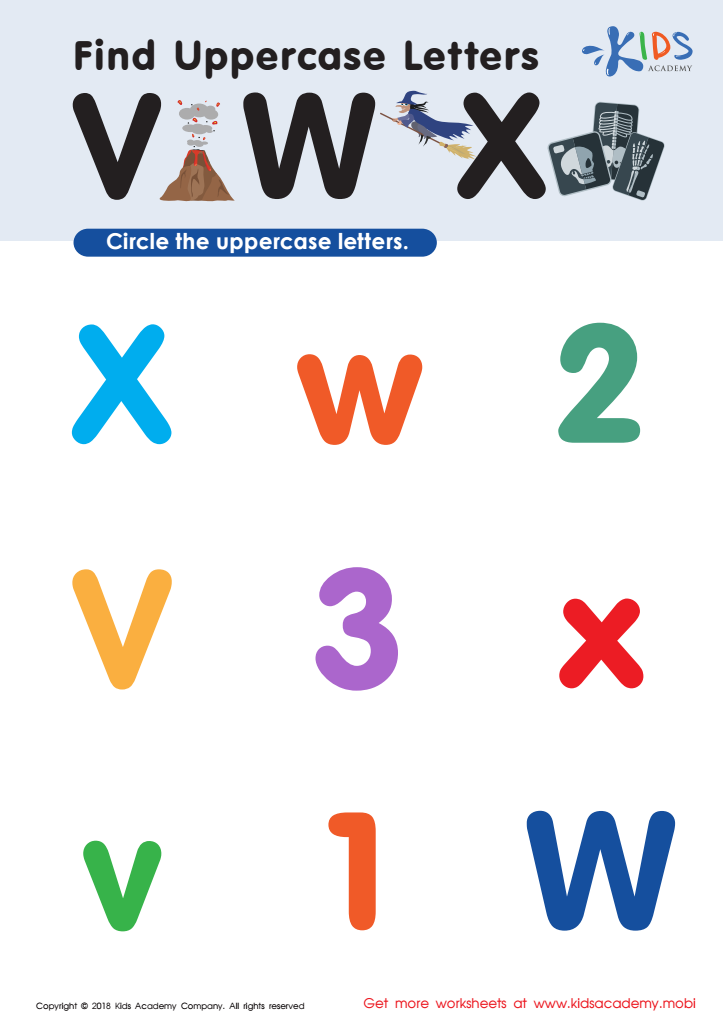

Find Uppercase Letters V, W, X Worksheet
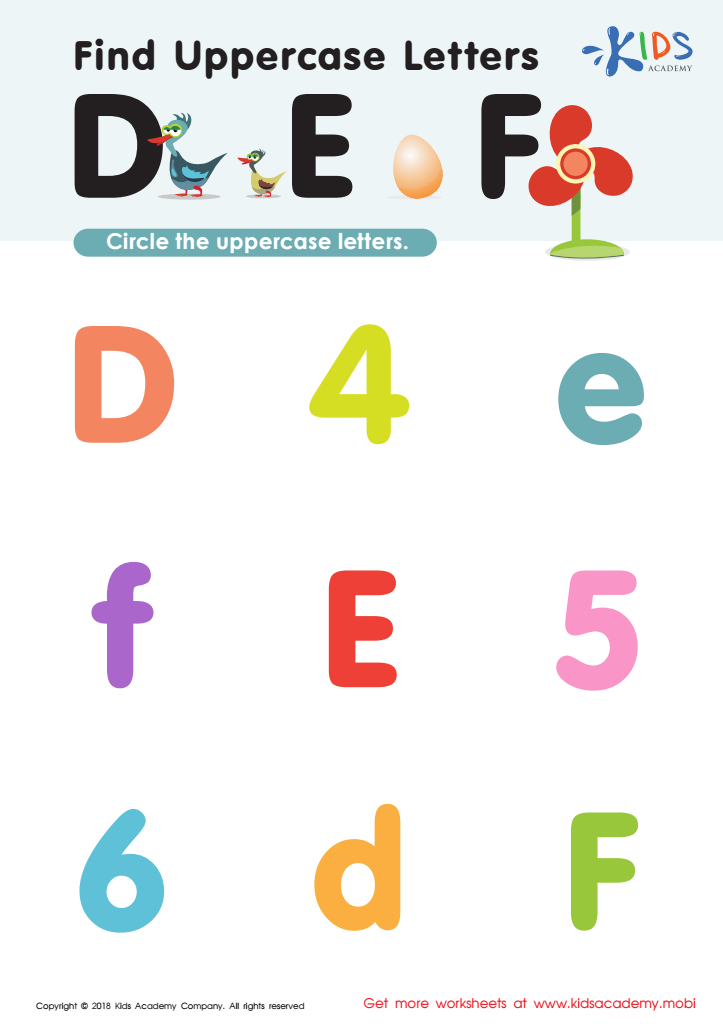

Find Uppercase Letters D, E, and F Worksheet
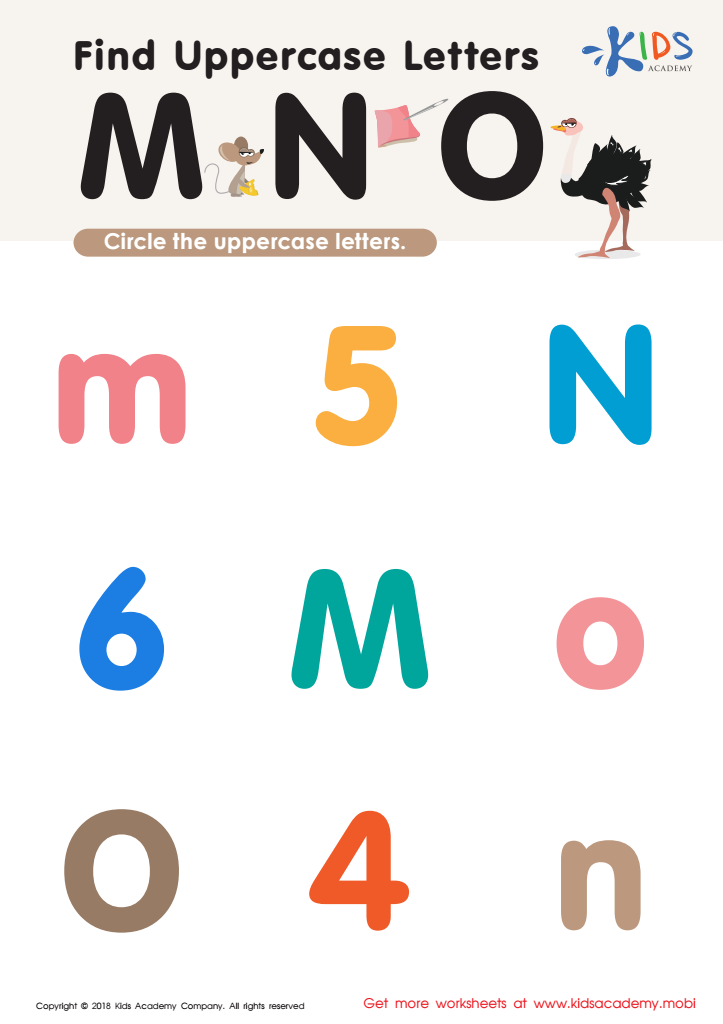

Find Uppercase Letters M, N, and O Worksheet
Letter recognition, particularly of uppercase letters, is crucial for children aged 6-8 as they transition into more complex reading and writing tasks. This critical period in their development lays the foundation for literacy skills. Recognizing uppercase letters allows children to understand and comprehend written language better, as they often encounter proper nouns, the beginning of sentences, and titles in this form.
When parents and teachers prioritize letter recognition, they are facilitating a child’s ability to decode words and comprehend text, which is essential for academic success. Strong letter recognition skills enhance phonemic awareness, aiding children in learning how to connect sounds to letters, which is crucial for spelling and reading fluency. Additionally, engaging children with uppercase letters can stimulate cognitive development, boosting their confidence in literacy tasks.
Moreover, reinforcing letter recognition through fun activities can foster a love for reading and learning. Parents and teachers play a pivotal role in creating engaging content and opportunities for practice, making the learning process enjoyable. In summary, focusing on uppercase letter recognition equips children with essential tools for effective communication, critical thinking, and lifelong learning, making it a priority in early education.
 Assign to My Students
Assign to My Students









